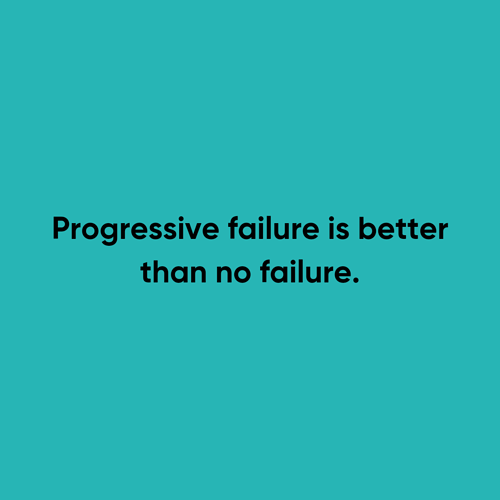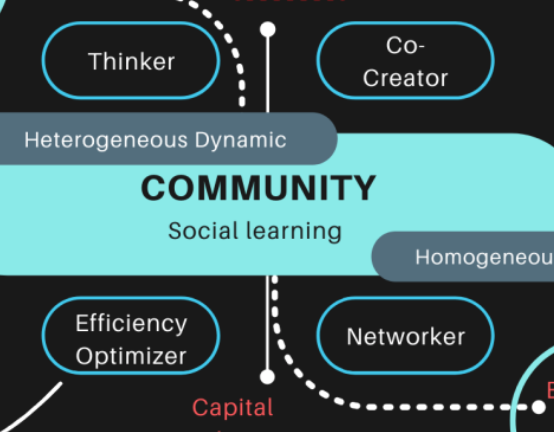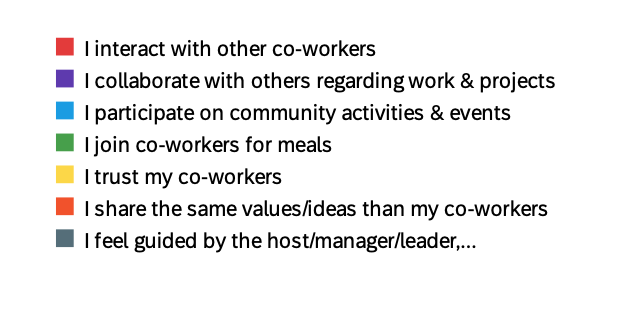I am sorry for using confusing metaphors (you started  )
)
LOL no worries, you’re right I def started it this time 
Together with the interviews, I found out that 1. Trust is given “Always” or “Most of the Time”
I think your data provides exactly the clue to answer your question!
A good starting point is this talk about trust, and more specifically, trustworthyness. Onora O’Neill’s work is vast on the topic of trust.
Combing O’Neill’s perspective with a few of my own ideas and observations:
First, trust isn’t a binary or an on/off switch, it’s a spectrum.
Second, people may say they give trust “always” or “most of the time” but I bet you’d find some illuminating answers if you asked them how much or in what ways.
Just for illustration’s sake:
- Would you leave them with your laptop or other valuables unattended? Would you lock your screen when you left your laptop, or leave it unlocked?
- Would you ask them to watch after a pet? Your kids? Your house?
- Would you lend them your umbrella? Bicycle? Car? $1000?
- Would you share how much money you earn? How much debt you have?
- Would you recommend them for a job working for your best friend, or a family member?
- Would you ask them for advice? Would you take their advice? Would you recommend them as a source of advice for other people?
Obviously the answers to these are more nuanced, and depend on lots of context. Which is exactly the point. Collaboration isn’t simply “working together” it’s an act of psychological intimacy and requires access to the deeper layers of trust beyond what most people will give as a default.
Going a bit further, I like to borrow an idea from the field of positive psychology. Before positive psych, the discipline of psychology was mostly about “fixing broken people” or getting them from some form of damaged, to a “normal” or “healthy” baseline. If you thought of it as a spectrum of psychological wellness, people started treatment somewhere on a negative number spectrum (say negative 10 to zero), and positive psych tried to get them closer to zero.
Positive psych came along and said: wait, these tools aren’t just for fixing what’s broken, they can also be used to unlock potential. The field of positive psych attempts to help people expand into the 0 to +10 positive end of the spectrum.
Now…take that spectrum –– from -10 to 0 to +10 –– and apply it to trust.
In the professional cultures of most western countries, people tend to view trust on a -10 to 0 spectrum, where “I trust you” in a work setting really means “I don’t think you’re actively trying to screw me over.” Contracts and negotiation, most organizational politics, etc are all rooted in making sure you’re not getting screwed.
But what of the 0 to +10 end of the trust spectrum? Again, in most western cultures, that’s reserved for family and close friends. In the best of cases, we find the 0 to +10 trust spectrum at play in neighborhoods and communities, where trust goes further than “I don’t think you’re trying to screw me” and instead “I have a reason to believe you have my back.”
In the context of a survey of people in coworking spaces, I’d be willing to be that 99% of the people who said “I trust my coworkers” were really saying “I think they’re decent people and aren’t actively trying to hurt me” but that’s not that same as “I think that they are actively looking out for me and my best interests.”
And THAT is why collaboration is so much harder, and why collaboration so often fails when it’s not built on the foundation of people who have demonstrated trustworthiness.
Collaboration requires a level of trust and trustworthiness to be visible and accessible. IMO this is a HUGE part of the job of the tummler, to create and co-create spaces and opportunities where people can demonstrate their trustworthiness just as much as people can extend (and test) that trust safely through acts of community co-creation before going deeper into a higher-stakes collaboration.




 ) and yes, you are right. But all lifeforms need other lifeforms to survive, so your argument does not really count in my eyes. I agree with your points a) and b), but surprisingly my research showed slightly different results. I asked for:
) and yes, you are right. But all lifeforms need other lifeforms to survive, so your argument does not really count in my eyes. I agree with your points a) and b), but surprisingly my research showed slightly different results. I asked for:
 I thought about this kind of evaluation, but you are right. Would you say it makes a difference if you live in a high or low context culture?
I thought about this kind of evaluation, but you are right. Would you say it makes a difference if you live in a high or low context culture?